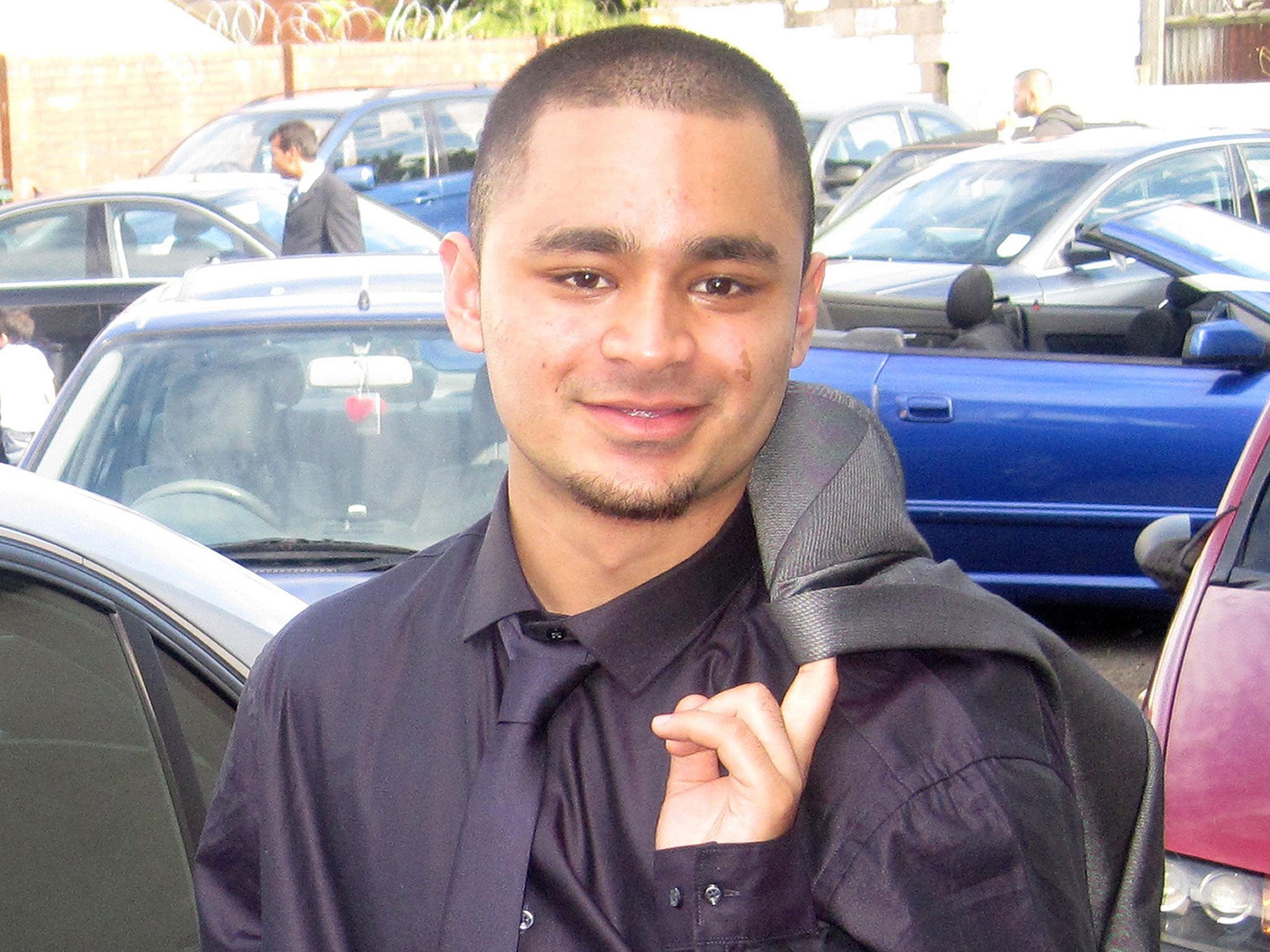Azezur 'Ronnie' Khan: Met to face scrutiny over failure to prevent gangland funeral killing
Mr Khan was shot dead by an unknown gunman after being caught up in an apparent turf war between two south London gangs

The extent of police intelligence failures surrounding the murder of an innocent man at a gang member’s funeral are set to be examined for the first time this week more than four years after the killing.
Azezur “Ronnie” Khan, 21, was shot dead by an unknown gunman after being caught up in an apparent turf war between two south London gangs while attending the funeral of Joel Morgan, an old school friend who had died in a car crash, in November 2011.
Police had been warned about the possibility of violence at the burial of Morgan, a member of the Brixton-based GAS Gang, but a series of mistakes meant that no officers were sent.
While the funeral service and the wake were held in Lambeth – the home of the GAS Gang – the burial was in the neighbouring borough of Southwark, in the “turf” of two rival gangs. Mr Morgan’s mother, Carlene Brookes, had asked for a police presence because of fears that her son’s grave would be desecrated by her son’s former gangland rivals.
An emotional Mr Khan – a respected mentor to young people at his local mosque – had just left the graveside of his friend when he was shot and killed just outside the cemetery. A 17-year-old was also wounded.
In 2012 an inquiry by the police watchdog, the Independent Police Complaints Commission (IPCC), found that intelligence was not properly checked, warnings were not passed on, and officers wrongly assumed that colleagues had picked up the work.
An inquest starting this week is expected to hear fresh details of the intelligence-gathering operation following a long legal struggle by the family of Mr Khan to secure documents from the Metropolitan Police to determine what went wrong.
They hope to discover during the eight-day inquest why there was no police presence at the funeral, and whether one might have stopped Mr Khan from being killed. Police believe that he was killed simply for attending the funeral and have no information to suggest that he was targeted.
Despite a number of arrests, nobody has been charged with the killing. The family said that detectives had told them that there was little prospect of that changing.
“We don’t want this happening to anybody else,” said Pinto Khan, the dead man’s brother. “It’s clear to us that they messed up time and again. The quality of their work just wasn’t good enough.”
The GAS Gang – which stood variously for “Guns and Shanks [knives]” or “Gangsters Always Shoot” had a long history of tensions with the neighbouring Peckham Young Guns gang.
But initial intelligence reports suggested that there was a “low threat to life” from gang tensions and one officer advised against an overt presence at the funeral for fear of inflaming the situation, according to a report by the IPCC.
A request for a undercover “spotter” to identify rival gang members was turned down because nobody was available. The watchdog’s inquiry also found that one officer had mistakenly believed that Mr Morgan’s mother had not wanted a police presence at the funeral.
The IPCC concluded that mistakes had been made but did not amount to misconduct by any officer.
It said it was impossible to say if Mr Khan’s life would have been saved even if there had been a police presence at the funeral.
